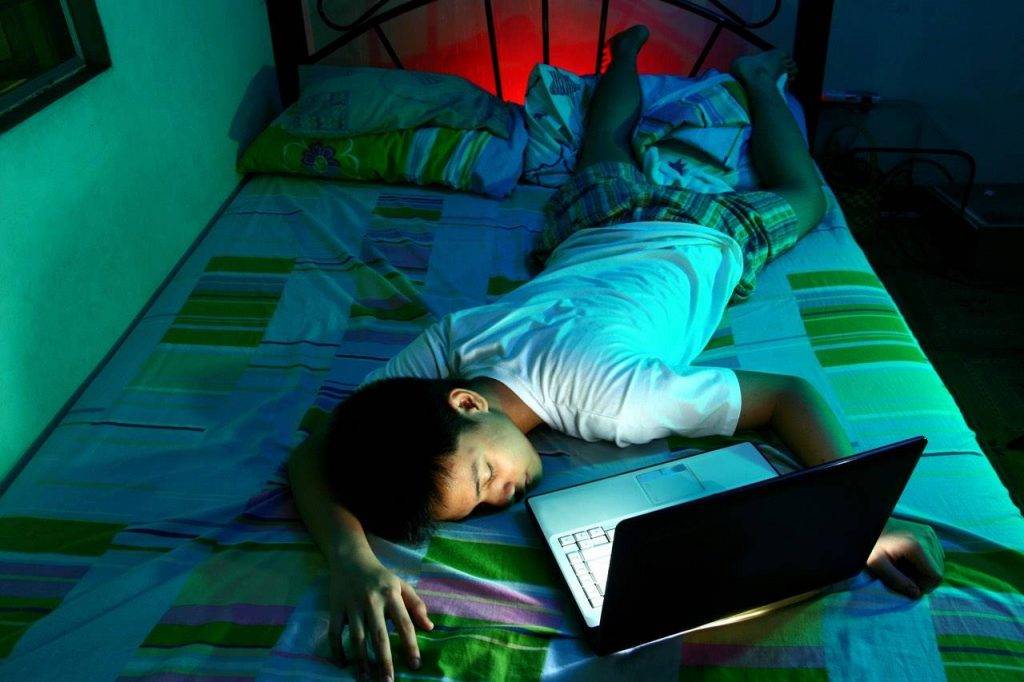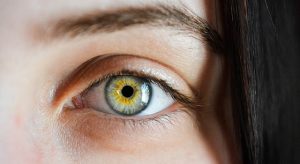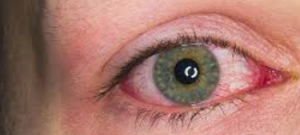Computer vision syndrome affects more than 50% of children and adults.
While changing your everyday behaviors or environment is the most common treatment for eye strain, an underlying eye problem may necessitate treatment for certain people.
Wearing glasses that are prescribed for certain tasks, like computer use or reading, can help alleviate eye strain for some people. Eye doctors also recommend taking regular breaks to rest your eyes.
The Mayo Clinic website has many excellent sites providing tips to avoid computer eye strain, here is a summary of the top 9.
How to prevent computer eye strain
Here are some tips to reduce or prevent screen-related eye strain.
1. Adjust lighting
It may be easier on your eyes to watch television if the room is dimly lit.
Bright lighting and glare can make it difficult to see objects on your monitor and strain your eyes. The most serious issues are caused by sources above or behind you, such as fluorescent lighting and sunshine. Consider turning off some or all of the lights in the ceiling.
Avoid positioning your monitor directly in front of a window or a white wall by closing curtains or shades. Cover the screen with an anti-glare cover.
Try to situate the light source behind you and direct the light onto your page or task when reading printed materials or conducting close work.
Use a shaded lamp positioned in front of you if you’re reading at a desk so that the light won’t shine directly into your eyes.
2. Take breaks and limit screen time
Take frequent breaks from close work and rest your eyes by looking away from the computer screen.
Breaks and limiting screen time is particularly crucial for children, who may not recognize the link between prolonged gazing, eyestrain, and the need to rest their eyes on a frequent basis.
SEE RELATED: Digital Eye Strain
Schedule an appointment with an eye doctor near you to discuss computer eye strain and the best options for you.
3. Use artificial tears
Artificial tears sold over the counter can help prevent and alleviate dry eyes caused by infrequent blinking, as people blink much less frequently when looking at a screen.
Preservative-free lubricating drops can be used as frequently as needed. Eye drops that contain a redness reducer should be avoided since they can exacerbate dry eye problems.
4. Improve the air quality
Indoor heating and air-conditioners dry the air. Using a humidifier and avoiding smoke are some modifications that may help prevent dry eyes.
If you smoke, you should think about stopping.
Moving your chair to a new location can help reduce the quantity of dry air directed toward your eyes and face.
5. Choose the right eyewear
If you need glasses or contacts and work at a computer, you might consider purchasing computer glasses.
Ask your eye doctor about lens coatings and tints, which may be beneficial.
6. Blink often
When working at a computer, many people blink less than usual, which can cause dry eyes.
Blinking causes tears to form in your eyes, which moisturizes them. When looking at a computer screen, make it a habit to blink more frequently.
7. Adjust your monitor
Place your monitor approximately an arm’s length in front of you, so that the top of the screen is at or slightly below eye level.
To make reading easier, enlarge the font type. Also, set the contrast and brightness to a comfortable level for you.
It also helps to have a chair that can be adjusted to the most comfortable height.
8. Use a document holder
Place print material on a document holder if you need to refer to it while working on your computer.
Some holders are designed to be positioned between the keyboard and display, as material can be set at 45 degrees, rather than flat on the desk.
The idea is to lessen the amount of time it takes your eyes to adjust and the number of times you turn your neck and head.
9. Alternative medicine
Natural items like bilberry extract and omega-3 fatty acids in fish oil may help ease some symptoms of eyestrain, especially if you have dry eyes.
If you’re thinking about using supplements to aid with your symptoms, talk to your eye doctor first.
LEARN MORE: Guide to Eye Conditions
Contact an eye doctor near you who can diagnose and treat your computer eye strain.
The usage of a computer is a common source of eyestrain. These self-care tips can help relieve some of the strain on your eyes if you work at a desk and use a computer.









